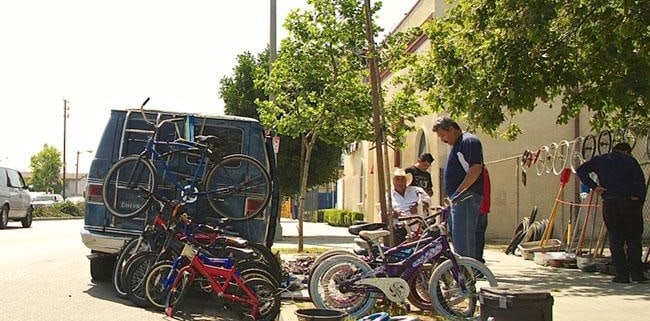The Untokening Next Step in Transportation Justice
For too long, bicycle advocacy has been dominated by white middle class men. The advocacy agenda has for the most part reflected the interests of this narrow subculture. It’s limited our success and, in our increasingly diverse nation, such exclusion will halt progress completely. Other voices have been included, especially in the last decade, but it’s not hard to see how far we have to go to include people of color, women and low-income people in order for our movement to truly reflect the diversity of our communities. Too often, such voices are mere tokens of diversity and not reflective of genuine inclusion.
The Untokening on November 13 in Atlanta may be a watershed event for bicycle advocacy, as leaders and advocates, all of them people of color whose voices have been marginalized, gather to “address issues of mobility with the perspective of justice-oriented advocates as the starting point, not as a consideration.” It’s not for mainstream advocates to learn about equity, but for equity advocates to develop some “guiding foundational principles, definitions, frameworks, objectives, and even data that could help shape a larger vision of what equity and justice in mobility mean in theory and practice,” according to the event’s website.
To learn from the leaders present, and to share our own progress and challenges in pursuing equity, diversity and inclusion in the bicycle advocacy movement in California, the California Bicycle Coalition is sending board member Esteban del Río and staffer Norma Herrera. They will report in the December issue of the CalBike Report, and their learnings will inform our upcoming strategic planning process, as well as our 2017 California Bicycle Summit.
The Untokening takes place on Sunday, Nov. 13 following the “Facing Race” conference in Atlanta. Registration is open.



